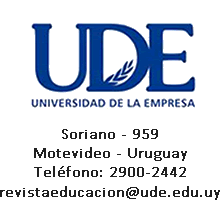Child development in homeschooling: a longitudinal study on the impacts of homeschooling on children's learning and emotional well-being
DOI:
https://doi.org/10.47966/avan-inv.2023.10138-64Abstract
This longitudinal study aims to take a deep look at the impact of homeschooling on education, incorporating the theories of Edgar Morin and Jack Delors, along with the research of authors identified through the "Publish or Parish" app. It is intended to provide information to parents and guardians to make decisions about their children's education, as homeschooling, also known as homeschooling, has gained popularity as a personalized educational option for parents who wish to meet the individual needs of their children. However, issues related to child development and the possible impacts on learning and emotional well-being are still a matter of debate. This longitudinal study sought to investigate the effects of homeschooling on child development, focusing on children's learning and emotional well-being. While homeschooling can provide a welcoming and safe environment, promoting self-esteem and reducing stress, a lack of social interactions and diversity of perspectives can lead to loneliness and isolation, limiting the development of empathy and compassion. The conclusions highlighted that homeschooling presents more harm than good for the children involved in this type of education since the education of children involves humanization, empathy and the formation of an empathetic citizen, autonomous and able to contribute to the improvement of society.
Additional Files
Published
Issue
Section
License
Copyright (c) 2023 Junior Aparecido Cardoso Peres

This work is licensed under a Creative Commons Attribution 4.0 International License.
Política para revistas de acceso abierto
Los autores/as que publiquen en esta revista aceptan las siguientes condiciones:
a. Los autores/as conservan los derechos de autor y ceden a la revista el derecho de la primera publicación, con el trabajo registrado con la licencia de atribución de Creative Commons (CC-BY), que permite a terceros utilizar lo publicado siempre que mencionen la autoría del trabajo y a la primera publicación en esta revista.
b. Los autores/as pueden realizar otros acuerdos contractuales independientes y adicionales para la distribución no exclusiva de la versión del artículo publicado en esta revista (p. ej., incluirlo en un repositorio institucional o publicarlo en un libro) siempre que indiquen claramente que el trabajo se publicó por primera vez en esta revista.












 This work is licensed under
This work is licensed under 
